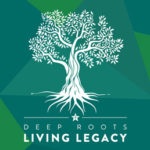WASHINGTON (RNS)—When you’ve lived as the holiest of the holy, coming back to Earth can be an unpleasant re-entry—entering the ranks of the unsaved only to find you have much more in common with the godless than you might have thought.
Being part of an American religious subculture is much more complicated than conventional wisdom would suggest. In a memoir and a book of essays, women with deep religious roots mourn, celebrate and analyze their experiences.
The memoir—Dating Jesus: A Story of Fundamentalism, Feminism and the American Girl by Susan Campbell—chronicles a journey from adolescence to reminiscences of the fallout inherent in leaving a childhood faith.
The book of essays, Jesus Girls: True Tales of Growing Up Female and Evangelical, edited by Hannah Faith Notess, assesses barriers to women in evangelical circles, differences in spiritual experiences and wrestling with personal faith.
Notess edited her book after realizing the gap between her quiet conversion experience and the dramatic, blinded-by-the-light stories of so many Christian writers.
“How do you figure out your faith when you don’t have a road-to-Damascus experience?” she says. “I found that a lot of my friends had had similar experiences to mine. I wanted to find some middle ground on both sides.”
So, she gathered stories from people who stayed or left their childhood churches, who drifted away from the church, or re-evaluated attending services.
Essayist Andrea Palpant Dilley explores her happy, offbeat childhood as the daughter of two former hippies who became Christians.
“My struggle with my faith in my late teens and early 20s was enigmatic for many reasons, one of which was the fact that I had had a healthy childhood in a healthy church,” she writes.
Sign up for our weekly edition and get all our headlines in your inbox on Thursdays
In the essay, “Why Isn't God Like Eric Clapton?” writer Dilley recalls watching Eric Clapton in concert in a hi-fi technology store as a pivotal moment in her spiritual development.
She saw his audience swaying “with the unmistakable demeanor of worship that comes with the experience of good music.”
That epiphany prompted an ongoing search, the sort of spiritual journey Notess discovered many evangelical women make. She hopes the book broadens readers’ ideas about growing up female and evangelical.
“I think a lot of times evangelical women are pigeonholed as the beautiful Christian wife or a rebel. You either are a good church lady or you are kicked out. I hope that people come away from the book sort of listening to those different voices and aware of how much thoughtfulness and thinking is going on,” Notess said.
Multiple problems plagued the author of Dating Jesus. Describing her high school years, newspaper reporter Campbell writes: “I do not feel like drinking or smoking marijuana …, and to avoid the issue I simply do not go to the parties that burst like mushrooms … every Friday.”
Years later, her religious roots still mark her.
“Through almost 30 years in the business and despite the fact that I no longer attend church, I kept rotating back to topics that would concern a religious type,” Campbell writes.
“I write about hunger and homelessness, homosexuality and civil rights, the juncture between faith and politics that only rarely is explored in polite conversation.”














We seek to connect God’s story and God’s people around the world. To learn more about God’s story, click here.
Send comments and feedback to Eric Black, our editor. For comments to be published, please specify “letter to the editor.” Maximum length for publication is 300 words.